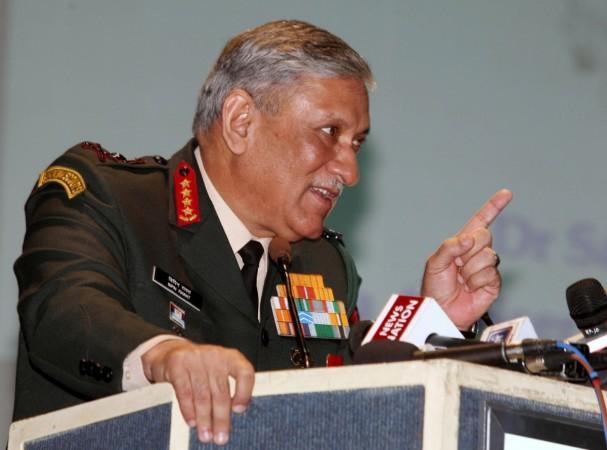
Just days after the United Nations released its report on human rights violations in Jammu and Kashmir, Indian Army chief General Bipin Rawat has lashed out at the report and said that it was "malicious" and "motivated."
"We don't need to be concerned about this report (the recent UNHRC report on Kashmir, which has been rejected by India). Some of these reports are motivated. The human rights record of the Indian Army is absolutely above board," Rawat told ANI.
The army chief was referring to the report that was released on June 14, in which the UN had asked for an independent international inquiry into the alleged human right violations in Kashmir and Pakistan-occupied Kashmir. It had said that the Indian security forces used extreme measures in the valley, which has had adverse effects on the civilians.
The 49-page report also added that several civilians sustained injuries due to these measures in 2016. The UN reports also asked Pakistan to end its "misuse" of anti-terror legislation. Explaining this, UN High Commissioner for Human Rights Zeid Ra'ad al-Hussein mentioned that the ongoing conflict between India and Pakistan "has robbed millions of their basic human rights."
The UN, in the report, also criticised the Armed Forces (Jammu and Kashmir) Special Powers Act, 1990 (AFSPA) and the Jammu and Kashmir Public Safety Act, 1978 (PSA), and said that these acts have "created structures that obstruct the normal course of law, impede accountability and jeopardize the right to remedy for victims of human rights violations."
Meanwhile, Rawat is not the first one to slam the UNHRC report.
After the report was released, India lashed out at the report and called it "fallacious, tendentious and motivated." The Ministry of External Affairs (MEA) labelled it "overtly prejudiced" and something that tried to build a "false narrative."
"Our protest and views in the matter have been conveyed unequivocally to the Office of the High Commissioner for Human Rights. We are deeply concerned that individual prejudices are being allowed to undermine the credibility of a UN institution," MEA spokesperson Raveesh Kumar had said.
The authors of the report "conveniently ignored the pattern of cross-border terrorism emanating from Pakistan and territories under its illegal control". "Cross-border terror and incitement is aimed at suppressing the will of the people of Jammu and Kashmir, disrupting its political and social fabric and undermining India's integrity," he added.
What is AFSPA?
The Armed Forces Special Powers Act is imposed on "disturbed areas" and gives the armed forces special powers to maintain law and order in these areas. The Act came into force due to the rising incidents of insurgency in several states.
Under AFSPA, the forces have the following powers:
- After giving a warning, a personnel can fire at or use other kinds of force against anyone acting against the law and order. This action may even cause death.
- Destroy dumps where arms and ammunition may be stored. The forces can also destroy hide-outs, shelter or training camp from which armed attacks may be carried out.
- To arrest anyone who has committed cognizable offences without a warrant. The personnel may even use force to make these arrest.
- To enter and search premises, from where the personnel may seize weapons and make arrests.
- Stop and search vehicles suspected of ferrying arms.

















